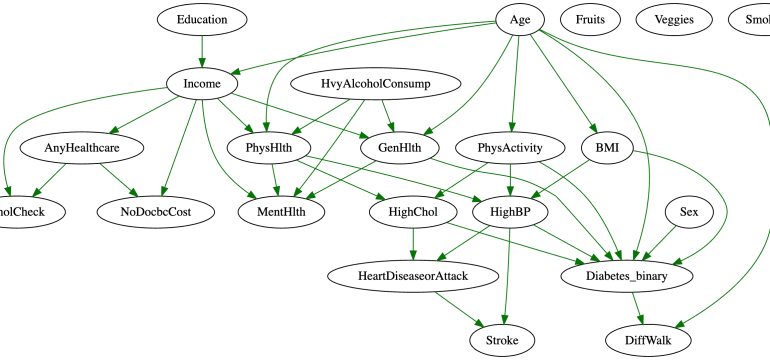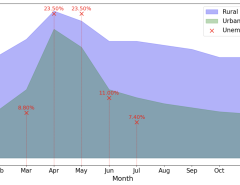Authors: Sheresh Zahoor, Anthony C. Constantinou, Tim M Curtis, Mohammed Hasanuzzaman
Published on: March 21, 2024
Impact Score: 7.8
Arxiv code: Arxiv:2403.14327
Summary
- What is new: The study introduces a novel model-averaging technique on structural learning algorithms to develop a unique causal model for diabetes, offering a detailed analysis on the impact of various intervention scenarios.
- Why this is important: Diabetes is a major global health issue. Understanding causal relationships among its risk factors is crucial for effective intervention and management but remains poorly explored.
- What the research proposes: The research applies structural learning algorithms on diabetes data, converts output to Causal Bayesian Networks (CBNs), and uses a model-averaging technique to derive a comprehensive causal model.
- Results: A unique causal model for diabetes was developed and validated against expert-categorized confidence levels, enabling more informed decision-making for healthcare practitioners on potential interventions.
Technical Details
Technological frameworks used: Structural learning algorithms, Causal Bayesian Networks (CBNs) conversion.
Models used: Model-averaging technique for algorithm outputs.
Data used: Relevant diabetes data.
Potential Impact
Healthcare systems, diabetes management tech companies, and health informatics businesses.
Want to implement this idea in a business?
We have generated a startup concept here: DiaPredict.



Leave a Reply